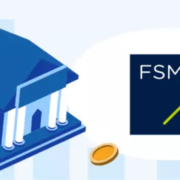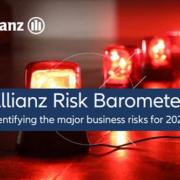Insurance in the Metaverse
Since Marck Zuckerberg has made metaverse one of his priorities, this technology has raised interest in diverse fields including the insurance sector. Let’s see how initiatives related to this virtual reality are progressively emerging within our industry.
What is a metaverse?
The metaverse is a virtual world that refers to a set of concepts such as virtual reality, augmented reality, extended reality or cyberspace. There is no clear definition, but Matthew Ball, CEO of the diversified holding company Epyllion wrote several essays on the subject. According to him, the metaverse is an “expansive network” of 3D simulations and persistent worlds, rendered in real-time and offering a continuous stream of identities, objects, histories, currencies, and permissions, which can be experienced by an unlimited number of users in an individual and synchronised manner. According to him, the digital worlds of the metaverse mix cyberspace, virtual reality, and the physical world and therefore do not exist in parallel with reality. Indeed, this new world allows individuals or companies to reinvent themselves in virtually.
Insurance compagnies taking the plunge
Today, more and more insurance companies are adopting a new strategy: developing insurance products in the metaverse. The aim is to offer users an immersive digital experience by creating virtual insurance policies. The metaverse thus constitutes an additional and innovative distribution channel for the companies’ products.
In 2024, the metaverse will be a market representing a business volume of 800 billion dollars according to Bloomberg Intelligence. This field therefore appears to be an investment, particularly for the insurance sector.
In February 2022, AXA France became the first French insurer to enter the metaverse by purchasing a parcel in The Sandbox, a virtual decentralised gaming platform. The objective is to create sharing spaces reserved for its talents and clients. Moreover, AXA has already immersed 1,500 employees in its virtual universe and is experimenting with HR and CSR issues. “For AXA, it is above all a discovery and learning process. Because, as a leader in insurance and a company focused on innovation, it is our responsibility to take part in these major technological advances in order to better support them in a learning process,” notes David Guillot de Suduiraut, Director of Transformation and Technology at AXA France.
The digital insurance platform Easyblue wants to position itself as a leader in metaverse issues. A round of financing has already enabled the development of a robot advisor and the objective is to digitalise the entire insurance environment for managers and also in the longer term for employees, self-employed workers, craftsmen, etc. with a digital ten-year guarantee formula.
Heungkuk Life Insurance, a subsidiary of the South Korean Taekwang Group, is the first life insurance company to join the Metaverse Alliance in August 2021. It has about 300 member companies, including Samsung Electronics, SK Telecom and Woori Bank.
Uno Re (Estonia) is the first decentralised insurance and reinsurance platform. It allows the IT community to invest, trade risks and receive a return on investment.
New risks emergence
As a result of the increase in access to virtual reality, new risks related to data security and health are emerging. To address these, banks and insurance companies are developing innovative services to guide individuals and businesses. Being a user of the metaverse means using an avatar that corresponds to one’s own identity, to one’s physical representation in the real world. Consequently, one of the new risks to be taken into consideration would be identity theft, either in order to access the victim’s credits or to usurp an avatar and pretend to be someone else in the virtual world with all the consequences that this entails.
In this dematerialised world, the insurer can compensate its client for all types of immaterial losses such as the crypto-currencies used by the avatars, the game currencies (V-Bucks in the game Fortnite), the tools used in games such as Minecraft, but also any virtual object that may suffer a loss. For example, this is the case for very rare virtual goods called “NFTs” (“Non-Fungible Tokens”). In addition, businesses, real estate, cars, health or virtual lives can also be damaged. In fact, an individual or a company that develops in the metaverse can take out an insurance policy adapted to their needs that will be granted according to the same criteria as in the real world.
François-Xavier Combe, founder of the digital insurance platform Easyblue, deciphers this major new challenge where all users will become guarantors of their virtual assets. “As with the Internet in its early days, there will undoubtedly be a ‘fare-west’ aspect at the start, and then regulation, which will involve protecting this property, via insurance in particular. Some people are already buying land in the metaverse, where virtual estate agents are present. Imagine that you build your own universe from this land: problems of material and intellectual property will arise. The emergence of an insurance principle is therefore necessary.”
The metaverse, the world of tomorrow?
According to Emmanuel Moyrand, founder of Insurtech in blockchain and member of the Board of Insurtech France, “The metaverse will be tomorrow’s market where we will insure the real (home and business and personal health and life) and the virtual (land, vehicles, avatars): going further than the Internet, the metaverse will replace it and will therefore be the place where tomorrow’s multi-channel digital customer experience will take place.”
In the next 5 years, a virtual parallel economy will be created where users can create, buy and sell goods. The meta-verse will bring a new dimension to our consumption habits by offering a new experience in terms of digital technology.
Several insurers have started to invest in the metaverse but it will take time before it truly revolutionises the sector.
Even if some insurers are taking their first steps into the virtual world, it will take some time before the metaverse starts a real revolution in the profession.
Sources :
- Matthew Ball, The Metaverse: What It Is, Where to Find it, and Who Will Build It
- Atlas Magazine, L’assurance digitale dans le métaverse
- Digital Guide Ionos, Qu’est-ce que le metaverse ?
- Pourquoi un assureur fait son entrée dans le metaverse ?
- Comment réinventer l’assurance dans le Metaverse ?
- Faudra-t-il s’assurer dans le metaverse ?
- Assurance x Métavers, c’est déjà du sérieux !
- Comment anticiper les promesses du métavers pour l’assurance








